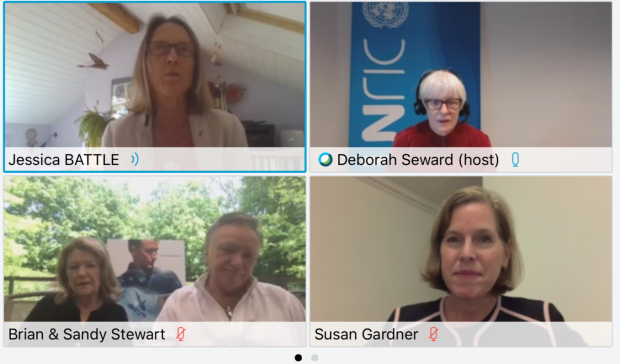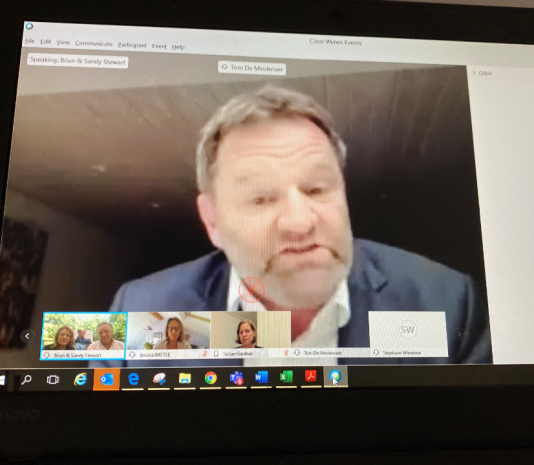‘Sharkwater Extinction’ virtual panel discussion for World Environment Day
Discussion details

To mark this year’s World Environment Day, Ciné-ONU Brussels, Vienna and Geneva, in collaboration with the United Nations Environment Programme (UNEP) and the Geneva Environment Network, went virtual to host the online screening of the award-winning film ‘Sharkwater Extinction’. On 5 June, audiences from across Europe and beyond were invited to join a panel of international experts in discussing the film and the many important themes raised within it. The discussion captured perfectly the spirit of World Environment Day in inspiring positive action for nature.
The theme for World Environment Day 2020 was biodiversity, emphasizing that now is the "Time #ForNature." We issued an urgent call to combat the accelerating species loss and degradation of our natural world at the hands of humans. ‘Sharkwater Extinction’ illustrated perfectly the shocking loss of biodiversity that is happening right now. The film follows filmmaker Rob Stewart as he exposes the massive illegal shark fin industry and the political corruption behind it, resulting in the loss of millions of sharks each year driving them towards extinction. Stewart’s mission, in the film and in life, was to save sharks and the oceans before it is too late.

Rob Stewart’s parents and the film’s producers, Sandy Campbell and Brian Stewart, were joined by wildlife experts for the virtual panel discussion, including UNEP’s Susan Gardner, Director of the Ecosystems Division; Jessica Battle, Senior Global Ocean Governance and Policy Expert at WWF; and Tom De Meulenaer, Chief of the Secretariat’s Scientific Services Team at CITES. Over 150 people from across the world tuned in to the discussion, including participants as young as 11.

The panel exchanged their views on the film and addressed many of the issues it raised, answering the interesting questions sent in by the audience. All panelists agreed that the situation for sharks has reached a critical point as Tom De Meulenaer explained that 200 million sharks are killed per year, while Brian Stewart highlighted many of the sharks being sold can be found on the endangered species list.

However, the panelists remained optimistic that sharks can make a recovery. “If you let nature rebound, she does heal.” said Susan Gardner. Panelists agreed that in raising awareness particularly to consumers, protecting habitats and reducing poverty there remains hope for not only sharks, but biodiversity to recover.
The full panel is available to watch here.
With particular thanks to the UN Regional Information Center (UNRIC) in Brussels who manage CineONU Brussels, for the overall coordination, and for ensuring the virtual moderation by Deborah Seward, UNRIC Director.
(1)
Log in with your EU Login account to post or comment on the platform.
what a nice summary - thanks a lot Alexa! I regret to say I missed this one, so it's really nice to have an overview available. Many thanks for this :)